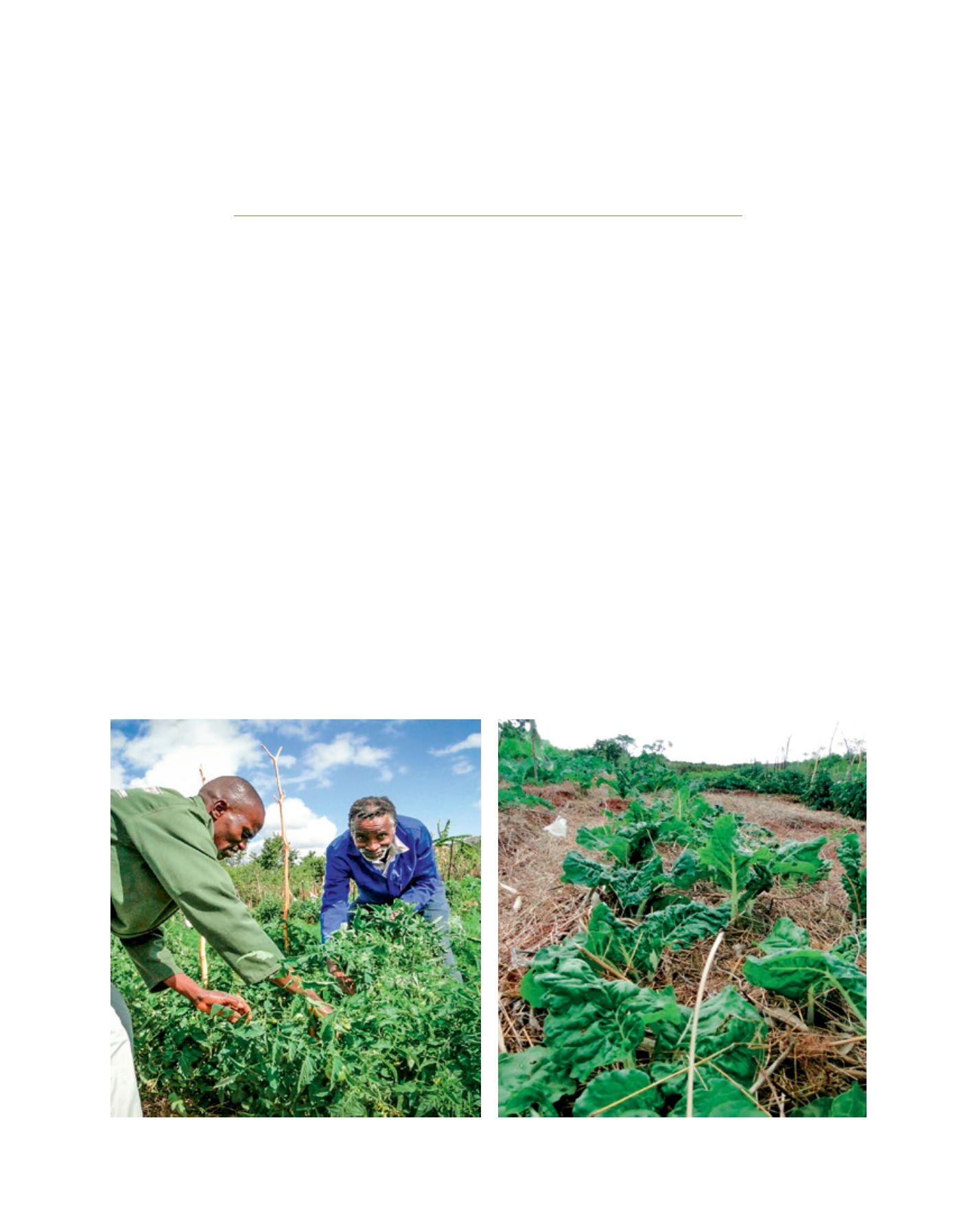

[
] 240
Influencing family farming policy
in Eastern and Southern Africa
Baliraine Hakim, Executive General Secretary, Eastern and Southern Africa Small Scale Farmer Forum
T
he Eastern and Southern Africa Small Scale
Farmer Forum (ESAFF) is a network of grass-
roots small-scale farmers’ organizations working
in 15 countries of the Eastern and Southern Africa (ESA)
region. It is a small-scale farmer initiated, farmer led
and farmer owned movement. Its purpose is to enable
small-scale farmers, the majority of whom are family
farmers in the ESA region, to speak as a united voice
so that issues, concerns and recommendations become
an integral part of policies and practices at national,
regional and international levels. ESAFF started in
2002 parallel to the World Summit on Sustainable
Development, and was registered in 2007 in Tanzania.
ESAFF has an independent Regional Board consisting of
farmer leaders from15 member countries, and its secre-
tariat is in Morogoro, Tanzania.
Smallholders, crop growers, fisher folk and pastoralists
account for 70 per cent of the population of about 300 million
in the ESA region. Family farming is fundamental in ensuring
food security and food sovereignty across the region (except
in Southern Africa where large-scale farming is dominant) to
about 70 to 80 per cent.
Family farming and agriculture contributes immensely to
gross domestic product (30 to 50 per cent) in ESA countries
as well as exports. It provides an opportunity for self-employ-
ment for millions of people in the region, and is a source
of livelihood for most rural populations. Family farming is
not just a practice, it is part of our culture. Not all family
farmers are small, but especially in Africa, family farms are
often considered to be synonymous with small farms and this
can create confusion. Family farms are those in which family
members provide most of the labour, including management,
and own most of the assets. The size of the farm is limited by
labour and capital constraints, but it varies according to the
availability and cost of labour, capital, land and the institu-
tions governing their movement.
There has been a general hypothesis that family farmers
are resource poor, hence their productivity is limited and as
a result they are vulnerable to food insecurity. This is not
Agroecology puts emphasis on healthy soil, biodiversity and local knowledge development as a basis for sustainable increases in production
Images: ESAFF
D
eep
R
oots
















